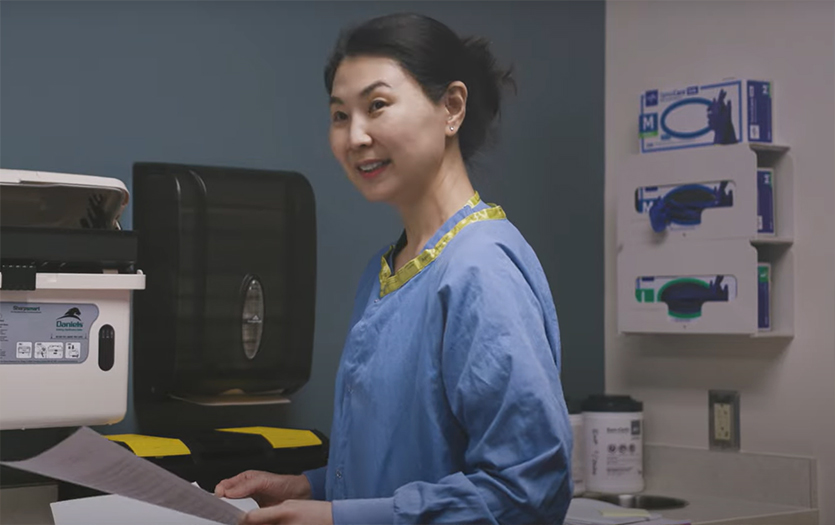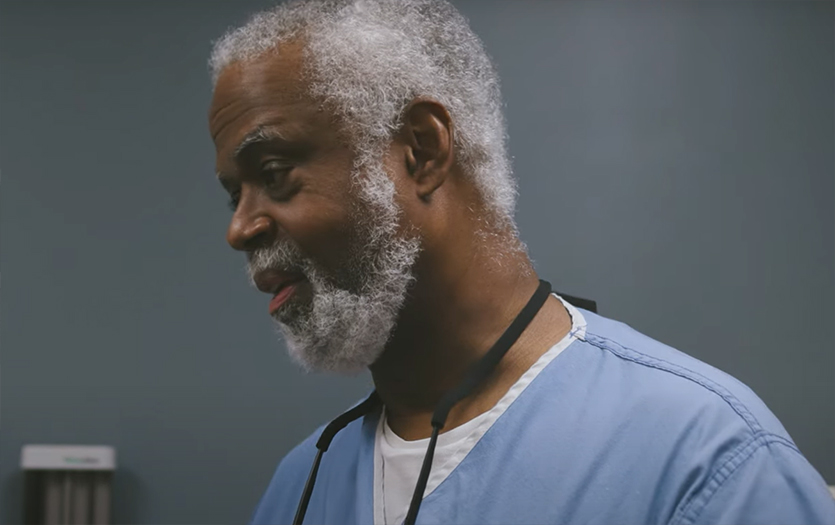
This post was written by William F. Young, MD, Head of Section, Parkview Neurosciences, Neurosurgical director, Movement Disorders, and Tara Kimbason, MD, movement disorders specialist, director of Movement Disorders Clinic, Parkview Neurosciences.
With similar-sounding names and overlapping specialties, it can be easy to conflate neurologists and neurosurgeons. While they both are highly trained physicians who specialize in treating conditions relating to the central nervous system, each specialty focuses on different techniques to treat those conditions.
Neurologist vs. neurosurgeon
The main difference between these two physicians is that a neurologist treats patients primarily through the use of medications, and a neurosurgeon treats patients through surgical techniques. Both specialties treat conditions that affect people’s ability to see, hear, speak, walk, use and knife and fork, and read and write.

Neurologists and neurosurgeons often work together. You may see a neurologist first, who will give you an initial evaluation and your neurologist will work with a neurosurgeon to decide jointly if a surgery is the best course of action. When procedures are performed, both specialists also work together.
Movement disorder specialists
Some neurologists and neurosurgeons further specialize in treating movement disorders. These movement disorder specialists (MDS) treat conditions like essential tremor, Parkinson’s disease, and dystonia, among others.
MDS neurologists provide comprehensive care for patients with movement disorders. MDS neurologists work closely with neurosurgeons, other medical specialists and therapists to offer multidisciplinary care, up-to-date medication management, non-medical/surgical management, and surgical treatment options. MDS neurologists recommend surgical options for candidates they believe will have successful outcomes with surgical outcomes.
MDS neurosurgeons perform surgical techniques including deep brain stimulators, which act as a pacemaker for the brain, to treat movement disorders.
Collaborative care
MDS neurologists treat movement disorders through use of medication, botulinum toxin injections, deep brain surgery (DBS) programming and adjustment of carbidopa/levodopa enteral suspension pump. Your MDS neurologist will evaluate you and, collaboratively with a MDS neurosurgeon, will decide if you are the right candidate for surgical treatment options. When procedures are performed, both specialists will work together, along with a full team of nurses, nurse practitioners, radiology technicians, radiologists, physical therapists, speech therapists, occupational therapists, pharmacists and Parkview administration.
Innovation in treating movement disorders
In January 2023, after three months of intense training we started the MRI Guided Focused Ultrasound Program for the treatment of certain movement disorders without the need for a surgical incision. (See one patient’s powerful results in this video.) Our results so far have been excellent, and our patients are appreciative of how much it has changed their lives.
With four locations in northeast Indiana and northwest Ohio, there's a Parkview Neurosciences Neurosurgery office near you. To learn more about conditions, treatment and support services, 260-425-6780 or 877-PPG-Today to schedule an appointment.



